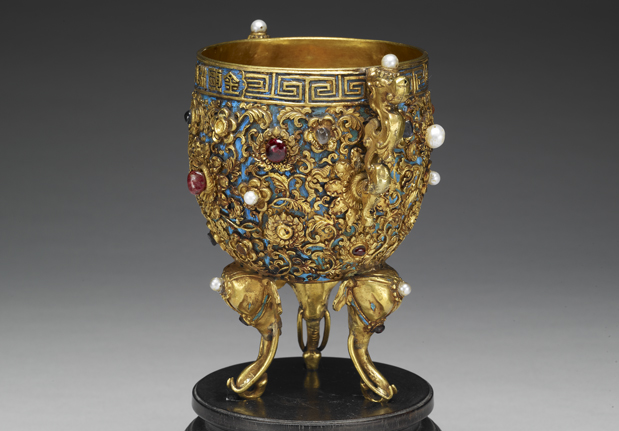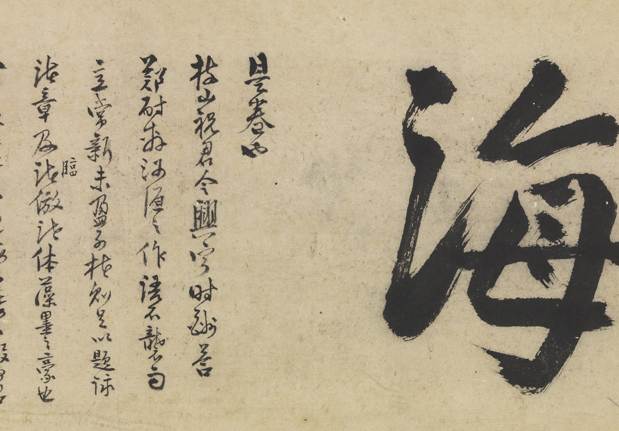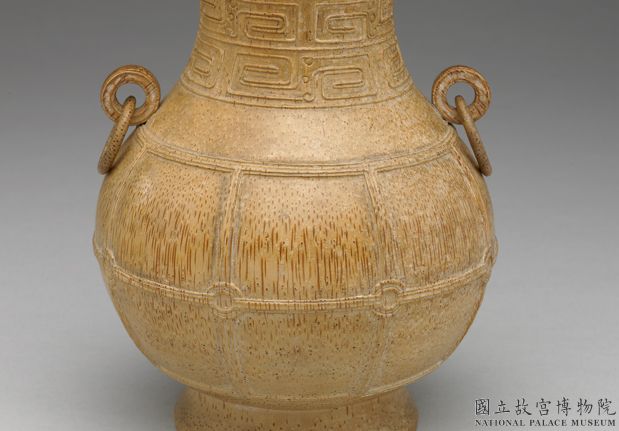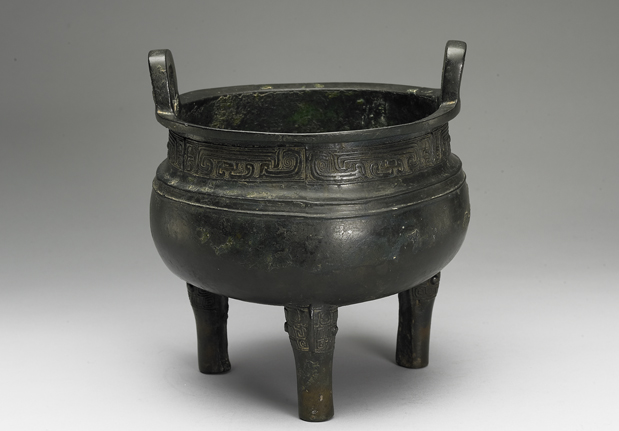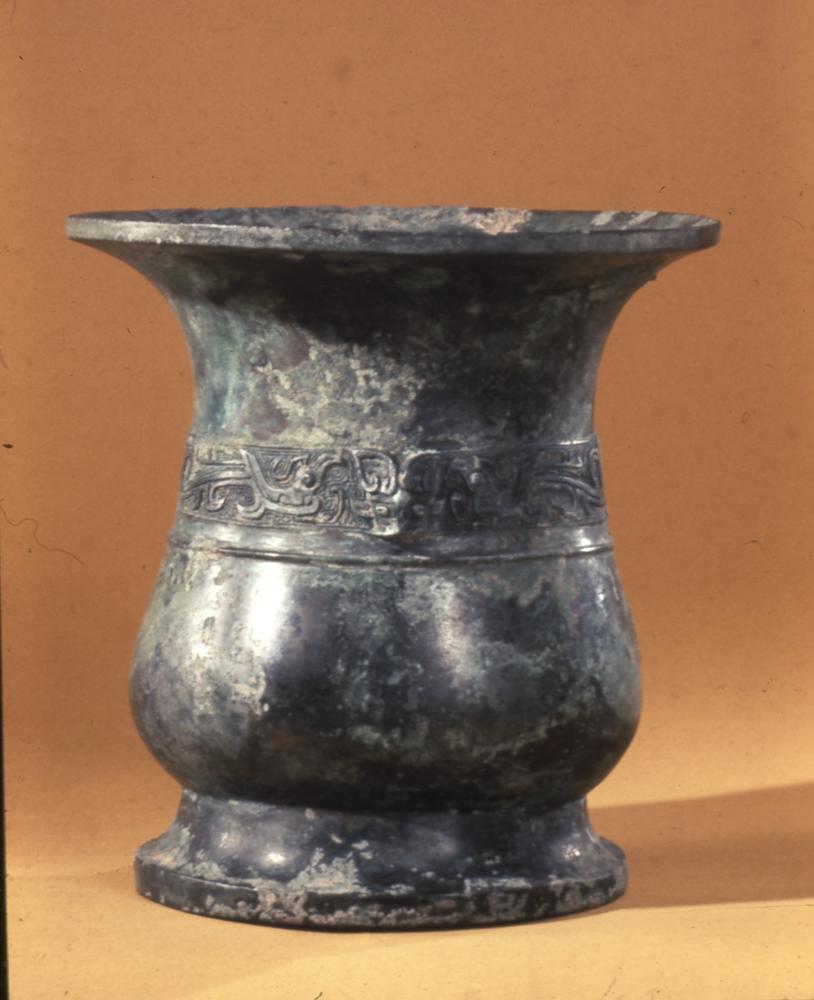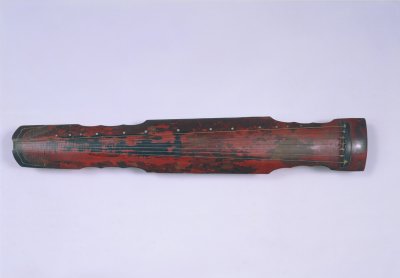Period:Jin dynasty Production date:1115-1234
Materials:porcelain
Technique:glazed, incised, moulded,
Subjects:mammal moon,flower
Dimensions:Diameter: 20.80 centimetres
Description:
Ding ware dish. The rim, copied from silver ware of the same period (see BM 1926.0319.13) has been formed by shaping the dish on a mould. This piece is unusual for combining a moulded shape with incised decoration, particularly as the complete design of a contemporaneous Southern Song album leaf painting has been reproduced, with a diagonal composition of a cow or an ox by a shore gazing at the moon. The interior sides are decorated with peony sprays. Made of white glazed and incised ceramic, porcelain.
IMG
![图片[1]-dish BM-1947-0712.61-China Archive](https://chinaarchive.net/Jin dynasty/Ceramics/mid_00181836_001.jpg)
![图片[2]-dish BM-1947-0712.61-China Archive](https://chinaarchive.net/Jin dynasty/Ceramics/mid_00309220_001.jpg)
Comments:Rawson 1992:The fine white porcellaneous ceramics made at the Ding kilns in Hebei province in north China, from the tenth to the thirteenth century AD, resemble silver not only in their carinated shapes and pale colour but above all in their extraordinary thin bodies and light weight. Early white wares are fairly thick and heavy (see BM 1968.0422.23). However, as demand for high-quality silver wine vessels grew and, it seems, eventually exceeded supplies, silver shapes were copied in white porcelains, the potters developing ways of carving the sides of the cups and bowls to make them as thin as beaten metal. To fire such delicate forms, Ding wares were turned upside down so that the rim would support the vessel as it was heated in the kiln.
Materials:porcelain
Technique:glazed, incised, moulded,
Subjects:mammal moon,flower
Dimensions:Diameter: 20.80 centimetres
Description:
Ding ware dish. The rim, copied from silver ware of the same period (see BM 1926.0319.13) has been formed by shaping the dish on a mould. This piece is unusual for combining a moulded shape with incised decoration, particularly as the complete design of a contemporaneous Southern Song album leaf painting has been reproduced, with a diagonal composition of a cow or an ox by a shore gazing at the moon. The interior sides are decorated with peony sprays. Made of white glazed and incised ceramic, porcelain.
IMG
![图片[1]-dish BM-1947-0712.61-China Archive](https://chinaarchive.net/Jin dynasty/Ceramics/mid_00181836_001.jpg)
![图片[2]-dish BM-1947-0712.61-China Archive](https://chinaarchive.net/Jin dynasty/Ceramics/mid_00309220_001.jpg)
Comments:Rawson 1992:The fine white porcellaneous ceramics made at the Ding kilns in Hebei province in north China, from the tenth to the thirteenth century AD, resemble silver not only in their carinated shapes and pale colour but above all in their extraordinary thin bodies and light weight. Early white wares are fairly thick and heavy (see BM 1968.0422.23). However, as demand for high-quality silver wine vessels grew and, it seems, eventually exceeded supplies, silver shapes were copied in white porcelains, the potters developing ways of carving the sides of the cups and bowls to make them as thin as beaten metal. To fire such delicate forms, Ding wares were turned upside down so that the rim would support the vessel as it was heated in the kiln.
© Copyright
The copyright of the article belongs to the author, please keep the original link for reprinting.
THE END
